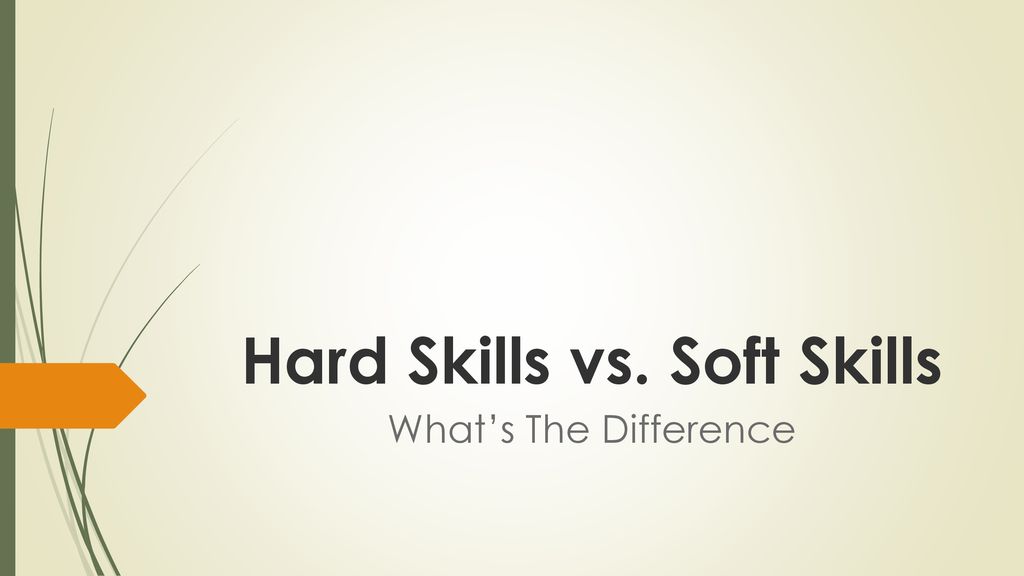Career Tips
The Differences Between Hard Skills Vs Soft Skills

Hard skills versus soft skills: which is better for your resume? Hard skills are job-specific. Nobody is born with them. Examples of hard skills include coding, budgeting, and cocktail mixing. Soft talents show that you’d be a good fit anywhere.
They are ingrained in the way you think, but you can also learn them. Examples of soft talents include interpersonal skills, communication, and leadership. To get recruited, you’ll need to demonstrate a good balance of both.
Hard Skills vs Soft Skills: What’s the Difference?
What Are Soft Skills?
We define soft talents as abilities that are not exclusive to any employment. Are you an excellent communicator? Do you collaborate with others, such as Steve Rogers? These are soft skills.
For example:
- Communication Skills
- Management Skills
What Are Hard Skills?
Hard skills are teachable abilities or skill sets that are easy to quantify. We define hard skills as technical talents appropriate for the work. Normally, you can learn hard skills in the classroom, through an online course, books and other materials, or at work.
What’s the Difference Between Soft Skills vs Hard Skills?
The Differences Between Hard Skills Vs Soft Skills skills, on the other hand, are characteristics that help with becoming a good employee, such as manners, communication and listening skills, and the ability to get along with others.
Soft Skills Examples
- Interpersonal Skills
- Communication
- Collaboration
- Problem Solving
- Leadership
Hard Skills Examples
- Gathering Software Requirements
- Forklift Operation
- Marketing Skills
- Phlebotomy
- Financial Modeling
- Shelf Stocking
- IT Skills
What Do Employers Look For?
Employers search for proof that you have the necessary hard and soft talents. That’s like a soft drink can that says, “Tastes great!” It signifies nothing. You must select and demonstrate the particular resume talents that the employer seeks.
Use Both Hard and Soft Skills to Grab the Interview
Prove your list of soft abilities, and you will think you can learn practically any hard skill. Prove your list of hard skills for resumes, and I will know you are already qualified for the position.
The idea is to understand which talents You value the most and then exhibit achievements on your resume that demonstrate them.
List of Soft Skills
| Leadership | Decision Making |
| Communication | Listening |
| Collaboration/Teamwork | Coordination |
| Time Management | Active Learning |
| Interpersonal Skills | Perceptiveness |
| Good Attitude | Detail-Oriented |
| Strong Work Ethic | Persuasion |
| Problem Solving | Customer Service |
| Flexibility/Adaptability | Psychology |
| Organization | Dependability |
| Self Confidence | Compassion |
| Self Motivated | Judgement |
| Honesty | Ethical |
| Critical Thinking | Physically Fit |
How to Pick the Right Soft Skills to Get Hired
Will you get the job if you stuff your resume with all 28 skills in the list above? Or even the top 10 soft skills?
- Nope. Anyone can do that.
But you can pick the few the hiring manager needs and snag the interview.
- How?
Look at the job ad. Here’s an example job description from LinkedIn, changed slightly:
Examples of Soft Skills and Hard Skills on a Resume
Accountant wanted. Good written and verbal communication, bookkeeping, and data entry skills. Must be dependable and have a strong work ethic. Will perform accounting functions…
Tip:
Eureka! You don’t have to ask me for a list of soft skills to put on resumes. The employer just told you what to say.
List those qualities and you’re halfway to paycheck land.
To go all the way, offer proof that makes the hiring manager say, “Wow.”
See this –
Which hard professional skills should you show on your resume? There are about 30 soft skills—total. There are thousands of hard skills.
You could list the top 10 hard skills, but they’re all in the tech world because software engineers are in high demand. It’s better to find the top 10 hard skills for your career.
First, find the skills for resumes that match your field. Here are sample resume & guide combos for almost every job. Each guide has a resume hard skills list.
Most applicants list too many resume skills. That’s actually a good thing, because it makes it easier for you to beat them.
Find the Right Hard Skills Like This
Zero in on the short hard skills list the hiring manager wants. Examples of hard skills?
Our software engineer resume guide lists 18 hard skills for resumes. They’re skills like data structures, security, coding, open source, Java, SQL, and Python.
If you put all 18 on your resume, you’ll get laughed out of the conference room. But check out this example job description:
Hard Skills Examples in a Job Description
The perfect candidate for this job will have experience with Objective-C and Swift, plus strong iOS mobile development knowledge with Cocoa Touch and similar frameworks.
Tips:
Well there’s your list of hard skills for a resume. The point? You don’t write a resume with a massive hard skills list, then machine-gun it out to every job offer you see.
You write a resume template, then tailor it to fit each job you apply to. Add just the list of hard skills the employer wants, plus a couple more. But— Just like with soft skills, don’t just list your resume skills. Prove them. I’ll show how next.
Lucky you. You saw above how to pick the right list of hard skills vs soft skills. Now learn to prove your skills for resumes so recruiters mob you like Black Friday.
How to Prove Your Skills on a Resume
Can you really prove resume skills on a sheet of paper? Yes, you can.
That is, you can prove them enough to get the interview. Enough to make the hiring manager say, “Let’s find out in person.” How? With achievements.
Pretend the job ad says, “We want a graphic designer skilled in (1) communication, (2) teamwork, (3) ecommerce, and (4) online layout.
First, add a list of soft skills and hard skills for resumes. But to get the job, do this with your resume bullet points
Examples of Soft Skills and Hard Skills on a Resume
- (2) Collaborated and (1) communicated daily with a marketing team of 15 people. Gave monthly progress presentations to the team.
- Facilitated team meetings for a project that increased revenue for (3) ecommerce clients 15%.
- Contributed to a customer site that (3) won a 2017 Shopify Ecommerce Design Award.
- (2) Collaborated on 30 projects to create images and (4) layouts for online content.
Whap. You just proved your skills for resume use. If the manager doesn’t double-take, his head was poorly designed.
The secret? Don’t look for synonyms to any of the words below.
Please don’t say on a resume, “I’m likable,” or, “I’m highly skilled.” Prove it instead.
“Wrote 1.5 million words of published articles in 2017” works better than a thousand synonyms for hard working.
But if you must, here’s a list of synonyms for common skills:
- Synonyms for Hard-Working: Dedicated, diligent. (The most prized of all the skills for resumes.)
- Personable Synonyms: Affable, amiable, easygoing, likable, great interpersonal soft skills
- Time Management Synonyms: Good at scheduling own work, fast, efficient
- Synonym for Patience: Composure, tolerance, restraint
- Synonym for People Skills: interpersonal skills, EQ, emotional intelligence
- Dependability Synonyms: Loyalty, trustworthiness
- Teachable Synonyms: Fast learner, active learner, quick study
- Opposite of Technical: Creative
- Synonym for Qualified: Certified, accomplished, capable, licensed, competent
- Highly Skilled Synonyms: Adept, able, proficient
- Proficient Synonym: Accomplished, gifted, skill
Again, hunting synonyms for skills for resumes is barking up the wrong decision tree.
Show measurable accomplishments.
Here’s a recap of hard skills vs soft skills for resumes:
- Soft skills are traits that make you a good worker. They’re things like work ethic, organization, communication, collaboration, and leadership.
- Hard skills are abilities you learn in school or on the job. They’re things like C# programming, marketing campaign management, and financial forecasting.
Employers want a mix of hard skills vs soft skills on your resume. Find the ones they value most in the job ad. - Don’t just list skills on a resume. Prove them with measurable achievements in your bullet points.












